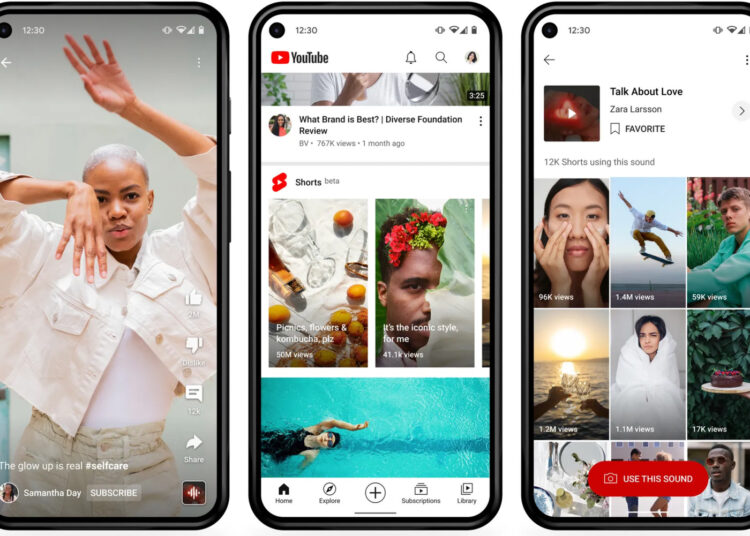SAN FRANCISCO ― All means are good when it comes to competing with TikTok. After launching its new Shorts format, YouTube is stepping up the monetisation of its content by bringing ads to the feature ― a good way to draw in brands and, above all, money.
It’s a strategy that may well pay off. Announcing its Q1 2022 earnings, the Google parent company Alphabet ― which also owns YouTube ― revealed that it is testing ads on Shorts, its new TikTok-like format.
While the test is still in its early stages, initial feedback and results from advertisers are already positive, according to the firm’s recent earnings call.
The development of monetisation strategies is a logical continuation of the success of YouTube Shorts. Indeed, according to the earnings call, the platform now achieves more than 30 billion daily views, apparently a four-fold increase compared to a year ago.
And the American giant is now keen to capitalise on this success. While users are spending more time on YouTube Shorts, they are spending less time on classic YouTube videos, which are monetized.
Content monetization has recently become one of YouTube’s priorities. It is a good way to attract brands as well as content creators, and therefore to sustain the platform. In addition to launching ads on its Shorts format, YouTube has also deployed its “Super Thanks” tool that allows users to send money directly to content creators.
Now all creators who are part of the YouTube Partner Program in 68 countries can receive these bonuses.
Other means deployed include “Super Chat,” which allows live users to pay to have their comments pinned in a chat, or “Super Stickers,” allowing creators to receive money if a user buys a sticker.
This is not the first time that YouTube has developed tools to push users to use its Shorts format. The platform previously set aside a sum of $100 million for the creation of the YouTube Shorts fund. And it’s a strategy that appears to be working.
In fact, over 40 per cent of creators who received payment from the fund in 2021 weren’t in the YouTube Partner Programme, Google’s chief business officer, Philipp Schindler, told investors.
It remains to be seen whether these efforts will be enough to compete with the Chinese giant.
TikTok has long allowed users to send money in the form of stickers during live streams. Ads have become commonplace on the platform, and creators also offer their own sponsored content.






Discussion about this post